Donald Trump has been using his pardon power lately, leading to speculation that he will also use it if and when impeachment action takes place. But it turns out that the Framers of the American Constitution thought of everything. When it came to the pardon power they even thought of Donald Trump.
Under Article II, sec.2, the president was given the “power to grant reprieves and pardons for offenses against the United States, except in cases of impeachment.” After the Constitution was drafted in the summer of 1787, it had to be ratified by at least nine of the states before it would take effect. Nearly everyone agreed that the president should have the power to pardon; some thought, however, that no one should be pardoned in the case of treason without the concurrence of at least one of the two houses of the legislature, because, in the marvelous phrase of Alexander Hamilton, “the supposition of the connivance of the Chief Magistrate ought not to be entirely excluded.”
The possibility that the president might use the power to pardon as a means by which to protect those with whom he had conspired to do harm to the United States by “adhering to,” or giving “aid and comfort” to, its enemies, led to one of the most important, but least remembered, exchanges in debate over whether the Constitution drafted in Philadelphia should become the Constitution of the United States. The exchange demonstrated that not only are there serious limitations on the president’s power to pardon, but that a president’s threat to use that power may itself be grounds for impeachment.
On the afternoon of Wednesday, June 18, 1788, George Mason rose from his chair on the floor of the Virginia Ratifying Convention deeply troubled by what he thought of the convention’s failure to understand—the president of the United States might not always be someone of sound character and high intelligence. There would rarely, if ever, he reminded the delegates, be a commander in chief with the courage and rectitude displayed by George Washington during the War of Independence. There might even be a president who would try to change our form of government. The president, argued Mason,
“ought not to have the power of pardoning, because he may frequently pardon crimes which were advised by himself. It may happen, at some future day, that he will establish a monarchy, and destroy the republic. If he has the power of granting pardons before indictment, or conviction, may he not stop inquiry and prevent detection? The case of treason ought, at least, to be excepted. This is a weighty objection with me.”
Some of the most famous men in American history were there that day as delegates to the Virginia convention. Patrick Henry, afraid that a national government would destroy the states, was leading the fight to reject the Constitution. John Marshall, who, as Chief Justice of the Supreme Court, would do more than anyone to make the Constitution the foundation for the kind of strong national government Henry feared, was one of the leaders in the fight to ratify it. But there was no one—no one in Virginia, nor in the country—with a deeper understanding of the Constitution and what it meant than James Madison.
Madison understood immediately the force of Mason’s objection, but he had a response—a response in which he described limitations on presidential power that, to our great misfortune, have for too long been forgotten. Was there a danger in giving the president the power to pardon? “Yes,” replied Madison, but there was a remedy for the danger in the Constitution as drafted.
“There is one security in this case to which gentlemen may not have adverted: if the President be connected, in any suspicious manner, with any person, and there be grounds to believe he will shelter him, the House of Representatives can impeach him; they can remove him if found guilty.”
Impeachment, in other words, can start, not when the President has been formally charged with a crime; he can be impeached if there are “grounds to believe” that he might “shelter,” that is to say, protect with a pardon, someone with whom he is connected “in any suspicious manner.”
But if impeachment starts, there has to be a trial in the Senate. The president still holds office until and unless he is convicted. What can stop him pardoning anyone who was involved in the crimes for which the president is being impeached or whose testimony might put him in jeopardy? The president, according to Madison, still holds office, but he no longer has the power to pardon. The House can “suspend him when suspected, and the power will devolve on the Vice-President. Should he be suspected, also, he may likewise be suspended till he be impeached and removed, and the legislature may make a temporary appointment. This is a great security.”[i]
Thus in today’s debates, the original intent regarding the pardon power should contradict, even in the minds of conservative lawyers and judges, Donald Trump’s insistence on his absolute right to pardon even himself. It would be an unprecedented claim of unprecedented power that would, as George Mason feared, destroy the republic.
[i] The remarks of George Mason are found on pages 496-497, and the reply of James Madison on page 498, of Vol.III of: The Debates of the State Conventions on the Adoption of the Federal Constitution, as Recommended by the General Convention at Philadelphia in 1787, 2d ed., ed. Jonathan Elliot (Philadelphia 1836). Elliot’s Debates, as they are usually called, were published first in five volumes in l830, but then a second edition was published six years later, “with considerable additions.” Both editions were “published under the sanction of congress.” In l941 J.B.Lippincott Company of Pennsylvania published a limited edition of 750 sets, which was an ‘exact reproduction” using the “plates of the original Second Edition.”
The Brookings Institution is committed to quality, independence, and impact.
We are supported by a diverse array of funders. In line with our values and policies, each Brookings publication represents the sole views of its author(s).

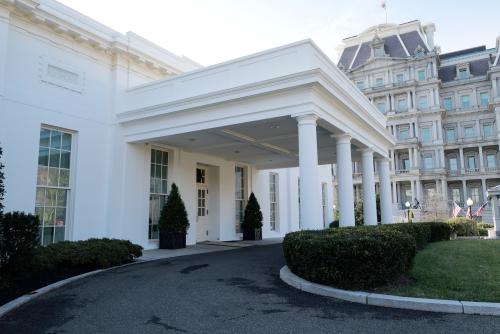
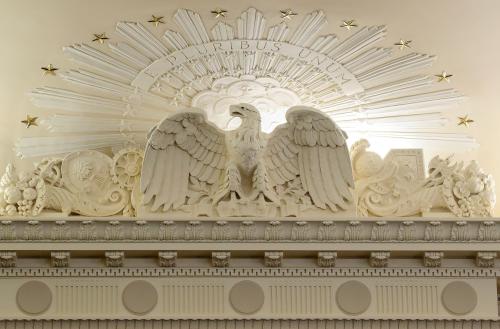
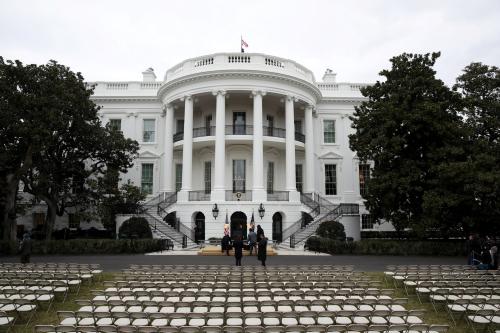
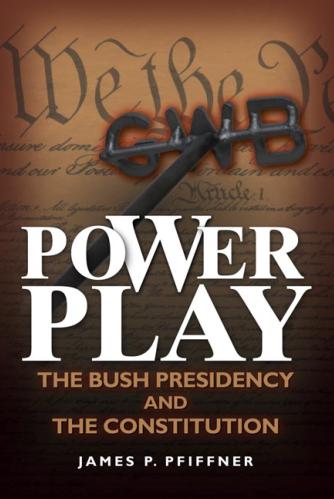
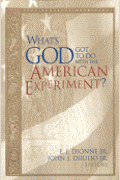
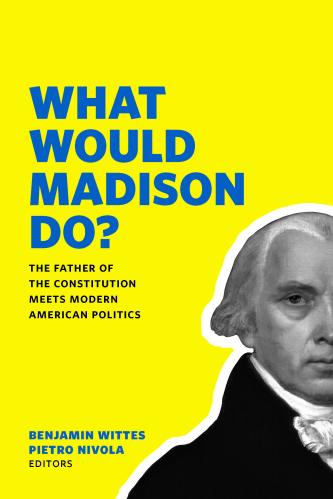



Commentary
The pardon power and original intent
July 25, 2018